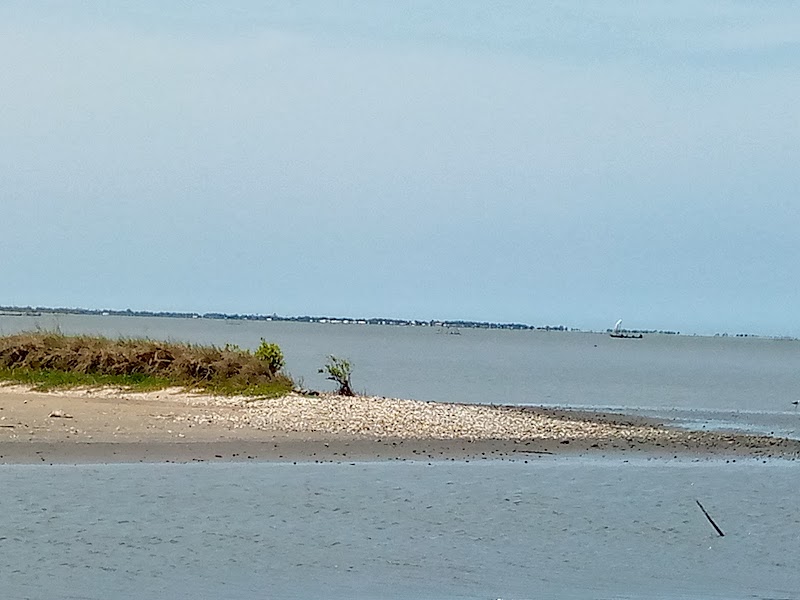
Keta Lagoon Complex Ramsar Site Adventures
The Keta Lagoon Complex Ramsar Site is a crucial wetland located in the Volta Region of Ghana, known for its diverse birds and rich ecosystems.
Popular Activities
Discover the Serenade of Wings: Birdwatching in Keta Lagoon Complex Ramsar Site, Volta Region, Ghana
As dawn breaks over the serene expanse of Keta Lagoon, golden rays awaken a symphony of bird songs that echo across the waters. This Ramsar Site, rich in biodiversity and teeming with life, invites adventurers and nature enthusiasts alike to experience its captivating beauty. Here, the interplay of land and water creates a sanctuary esteemed not only for its ecological significance but also for its breathtaking views and vibrant avian inhabitants.
Spanning approximately 300 square kilometers, the Keta Lagoon Complex boasts an ecosystem that plays host to over 150 bird species, including striking migratory visitors and colorful indigenous dwellers. As you approach the lagoon, the air will fill with the sweet melody of birds calling to one another, beckoning you to explore their world. From the regal African Fish Eagle to flocks of vibrant waders dancing on the water's edge, each moment is a glimpse into nature’s artistry.
Walking along the designated trails—well-trodden yet tranquil—you will find yourself surrounded by lush mangroves and salt marshes. Here, the land and water collide, creating a fertile habitat that attracts a dazzling array of wildlife. The paths may lead you through swaying reeds that whisper secrets when the wind blows, wrapping you in the essence of this unique environment. Keep your binoculars at the ready as you venture closer to the shore, where you might spot the elegant silhouettes of herons standing still, poised like living sculptures.
Before embarking on your birdwatching adventure, it’s crucial to be well-prepared. The lagoon, while offering peaceful encounters, can be unpredictable in terms of weather. Bring a lightweight rain jacket—tropical showers can arrive unexpectedly. Comfortable hiking boots are recommended, ensuring solid footing on sometimes muddy trails. Don’t forget to pack a reusable water bottle, as it’s essential to stay hydrated under the warm sun. Remember, the best times for birdwatching are early mornings and late afternoons when the birds are most active, so plan your visit accordingly.
As you wander through the lagoon’s diverse habitats, pay attention to the dynamic interactions between species. Notice how the African Jacana walks boldly across lily pads, a dandy among plant life, while kingfishers display their dazzling plumage in stark contrast to the emerald greenery. The beauty of birdwatching at the Keta Lagoon is not solely in spotting elusive species but in witnessing the rhythms of life unfold before your eyes.
For those seeking an enriching experience, consider hiring a local guide, who can illuminate the intricate stories behind each feathered inhabitant and the significance of the lagoon’s ecosystem. Guides can enhance your birdwatching experience, sharing knowledge about conservation efforts and the ongoing battle against climate change affecting this delicate environment. Their expertise can introduce you to hidden gems, allowing for unexpected sightings and making your adventure all the more memorable.
As the day wanes, find a peaceful vantage point to admire the sunset reflecting off the water's surface, igniting the sky in shades of pink and orange. This is more than just a destination; it’s an invitation to connect with nature’s wonders.
The Keta Lagoon Complex is a living canvas, alive with movement, color, and sound—offering a rare escape from the bustle of modern life. Whether you’re an experienced birdwatcher or a curious wanderer, the lagoon awaits with open wings, ready to share its enchanting stories. So, grab your gear, step into this untouched paradise, and let each moment unfold with the grace of the flighted creatures that call it home.
Plan Your Visit
Everything you need to know to prepare for an unforgettable trip to Keta Lagoon Complex Ramsar Site.
Entrance Requirements
Free access, but guided tours may have fees.
Best Time to Visit
November to April, when migratory birds are present and the weather is favorable.
Visitor Information
No formal visitor center; local guides are recommended.
Getting There
Accessible via main roads from Accra, though local areas may require navigation on smaller roads.
Weather & Climate
Generally warm and humid, with a dry season from November to April offering the best conditions for visiting.
Conservation Efforts
Threats include overexploitation and pollution. Conservation efforts focus on preserving biodiversity and supporting sustainable local livelihoods.
Camping in Keta Lagoon Complex Ramsar Site
Find the perfect spot to stay overnight and immerse yourself in the details.
Top Trails
Trailblazer Tips
Bring binoculars for optimal birdwatching experiences.
Visit between November and April for the best bird-viewing opportunities.
Consider hiring a local guide to enhance your understanding of the site.
Carry sun protection and water as the region can be hot and dry during midday.
